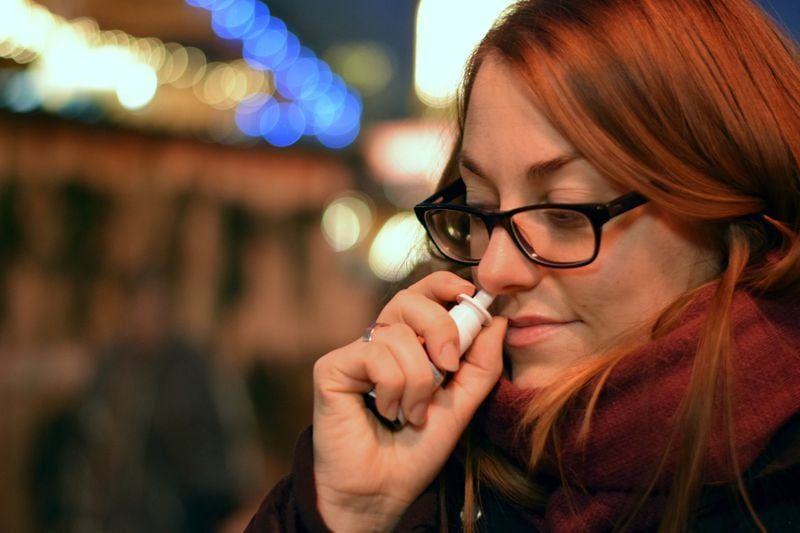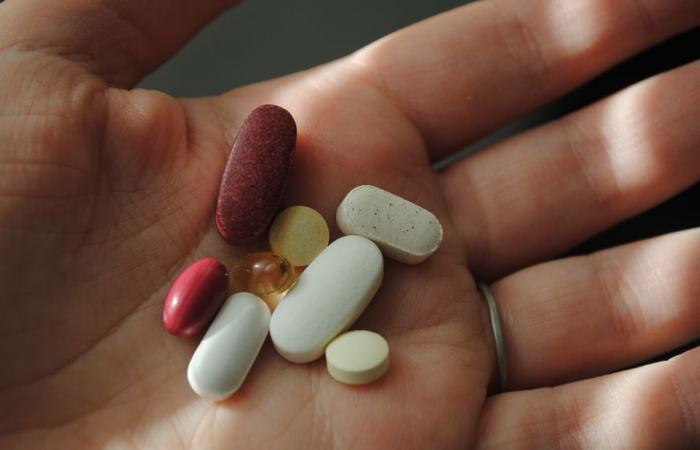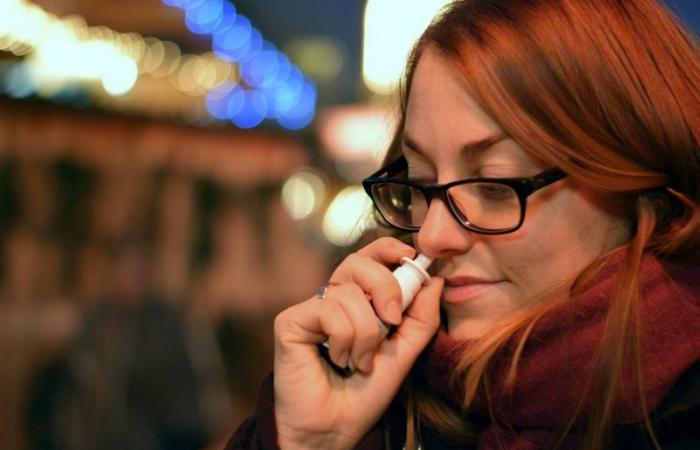Allergies happen When your immune system overreacts to a normally harmless substance such as dust or pollenHay fever, hives and anaphylaxis are all types of allergic reactions.
Many of those affected They quickly turn to antihistamines to treat mild to moderate allergies. (although adrenaline, not antihistamines, should always be used to treat anaphylaxis).
If you use oral antihistamines very frequently, you may have wondered whether it’s okay to continue relying on them to control allergy symptoms. The good news is that There is no scientific evidence to suggest that regular, long-term use of modern antihistamines is a problem.
But while they are good for attacking the first symptoms of a mild to moderate allergic reaction (sneezing, for example), oral antihistamines are not as effective as steroid nasal sprays in controlling hay feverThis is because nasal steroid sprays target the underlying inflammation of hay fever, not just the symptoms.
IncorrectIn fact, the recommended first-line medical treatment for most patients with moderate to severe seasonal allergic rhinitis (hay fever) They are intranasal steroids.
This could include nasal steroid sprays. (Ask your doctor or pharmacist for more information.)
Studies have shown that Intranasal steroids relieve hay fever symptoms better than antihistamine tablets or syrups.
To be effective, nasal steroids must be used regularly and, most importantly, with the correct technique.
Intranasal steroids work well to relieve nasal congestion and itching and watering of the eyes, as well as to improve chronic nasal obstruction (however, antihistamine tablets or syrups do not improve chronic nasal obstruction).

Some newer nasal sprays contain steroids and antihistamines. These may provide faster and more complete relief of seasonal allergic rhinitis symptoms than oral antihistamines or intranasal steroids alone. But the patients They should continue to use them regularly for two to four weeks to get the maximum effect.
For people with seasonal allergic rhinitis (hay fever), It may be best to start using intranasal steroids a few weeks before pollen season arrives in your regions. Taking an antihistamine tablet may also be helpful.
Antihistamine eye drops work better than oral antihistamines to relieve acute itchy eyes (allergic conjunctivitis).
Some people believe this myth so much that they may switch antihistamines. But there is none reason scientific to change antihistamine if the one you are using works for youStudies show that antihistamines continue to work even after six months of continuous use.
There are two main types of antihistamines: first generation and second generation.
The first generation, such as chlorphenamine or promethazine, are short-acting. Side effects include drowsiness, dry mouth, and blurred vision. You should not drive or use machinery if you are taking them, or mix them with alcohol or other medications.
Most doctors First-generation antihistamines are no longer recommended. The risks outweigh the benefits.
Newer second-generation antihistamines, such as cetirizine, fexofenadine or loratadine, have been studied extensively in clinical trials. They are generally non-sedating and have very few side effects. Interactions with other medications appear to be rare and do not interact poorly with alcohol.They have a longer action, so they can be taken once a day.
Although rare, some side effects (such as photosensitivity or stomach upset) may occur. At higher doses, cetirizine may cause drowsiness in some people. However, investigations carried out over a period of six months They demonstrated that taking second-generation antihistamines is safe and effective. Talk to your doctor or pharmacist if you have any concerns.

As long as it’s the second generation antihistamine, it’s fine. He can buy children’s versions of second-generation antihistamines in the form of syrups for children under 12 years of age.
Although they are still used, some studies have shown that certain First-generation antihistamines may affect children’s ability to learn and retain information.
Studies on second-generation antihistamines for children have found that they are safer and better than first-generation medications. They may even improve academic performance (perhaps allowing children who would otherwise be distracted by their allergy symptoms to concentrate). There is no evidence There is no evidence that they stop working in children, even after prolonged use.
For all these reasons, Doctors say it is better for children to use second-generation antihistamines than first-generation ones.
What about the use of antihistimines during pregnancy? A meta-analysis of pooled data from studies including more than 200,000 women found no increase in fetal abnormalities.
Many doctors recommend the second-generation antihistamines loratadine or cetirizine for pregnant people. They have not been associated with any adverse pregnancy outcomes. Both can also be used during breastfeeding.
If necessary, higher than standard doses of antihistamines can be safely used for extended periods in adults.
But talk to your doctor first. These higher doses are generally recommended for a skin condition called chronic urticaria (a type of chronic hives).
No. Adrenaline (administered through an epipen, for example) is always The first option . Antihistamines do not work quickly enough or address all of the problems caused by anaphylaxis.
Subsequently Antihistamines can be used to soothe hives and itching once the very severe and acute phase of anaphylaxis has passed.
In general, Oral antihistamines are not the best treatment to control hay fever; It is best to use nasal steroid sprays. That said, second-generation oral antihistamines can be used to safely and regularly treat mild to moderate allergy symptoms over the long term.
*Janet DavisProfessor and Director of the Allergy Research Group, Queensland University of Technology
**Connie KatelarisProfessor of Immunology and Allergy, Western Sydney University
***Joy LeeAssociate Professor, School of Public Health and Preventive Medicine, Monash University









